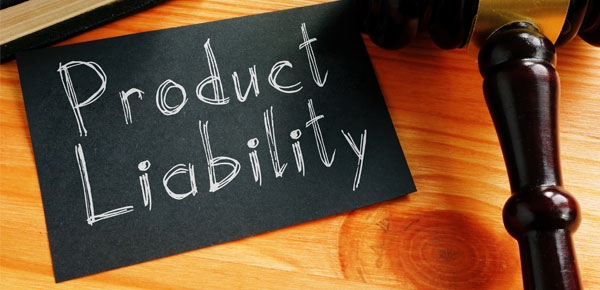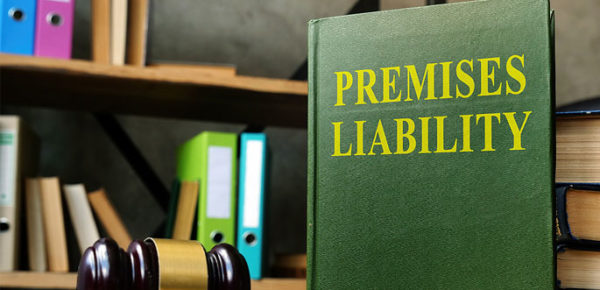Introduction: Opening the Door to Digital Dilemmas
Welcome to the fascinating world where artificial intelligence (AI) and the law collide. In this digital era, we find ourselves at the crossroads of innovation and legal intricacies, with ChatGPT and virtual assistants taking center stage across diverse industries.
These AI-powered marvels have become our go-to companions, offering assistance and solutions at the mere touch of a button. But with great power comes great responsibility, and that’s where things get interesting.
As we dive deeper into this topic, we’ll unravel the legal and ethical implications that arise when we rely on AI-driven technology to guide us through our daily lives. It’s a journey that unveils a complex tapestry of opportunities and challenges, blurring the lines between human interaction and machine intelligence. Get ready to embark on a thought-provoking exploration of the digital dilemmas we face in this AI-powered landscape.
AI Behind Bars: Liability for AI-Generated Content
The responsibility and liability for AI-generated content produced by virtual assistants like ChatGPT exist in a legal gray area that sparks intriguing discussions. As the boundaries between human and artificial intelligence blur, determining who should be held accountable for the content becomes a complex matter. This legal conundrum raises important questions about the extent of liability when AI is involved. Exploring this gray area requires careful examination of the legal landscape and an understanding of the unique challenges presented by AI-generated content.
Within this context, some cases and situations ignite passionate debates surrounding the accountability for AI-generated content. These intriguing examples bring to the forefront the complexities of assigning responsibility in a digital world where AI plays a significant role. Controversial scenarios often prompt discussions about the legal implications and ethical considerations that arise when AI becomes a content creator. Exploring these captivating cases helps shed light on the evolving nature of accountability for AI-generated content and the ongoing debates surrounding this pressing topic.
Privacy in the AI Era: Protecting Your Secrets from Virtual Ears
In the ever-evolving era of AI, the issue of privacy takes center stage, especially when it comes to virtual assistants. This section delves into the privacy concerns that arise in the AI era and focuses on the need to protect sensitive information from prying virtual ears. As virtual assistants become ubiquitous in our lives, questions about data breaches and unauthorized access to personal data become increasingly relevant. Exploring these concerns sheds light on the importance of safeguarding user privacy while using AI-powered assistants.
Within the legal landscape, measures are in place or should be in place, to address these privacy concerns. It is essential to understand the legal safeguards and protective measures that exist or are required to ensure the privacy of users in the AI era. From robust data protection regulations to stringent user consent frameworks, the legal system plays a crucial role in establishing boundaries and safeguards. By examining these existing or proposed measures, we gain insight into the steps being taken to protect user privacy in the age of AI.
Unveiling the Algorithmic Biases: Is Justice Really Blind?
As we get into the intricate world of AI algorithmic biases, we’ll explore the question of whether justice remains impartial in the presence of such biases, particularly when employed by virtual assistants in legal contexts.
The focus is on understanding the potential biases that may be ingrained within AI algorithms and the implications they carry in legal settings. By shining a spotlight on this critical issue, we aim to uncover the legal and ethical challenges that arise from biased outcomes, and the pressing need to ensure fairness and transparency in AI decision-making processes.
Examining algorithmic biases leads us to confront the intricate interplay between technology and societal biases. As we navigate through this terrain, we dive into the complexities that arise when AI-generated decisions may inadvertently perpetuate or exacerbate existing inequalities.
The exploration of legal and ethical dimensions in this context is crucial to comprehend the far-reaching consequences that these biases may have on individuals and society as a whole. By engaging in this exploration, we embark on a journey that encourages us to reflect on the role of AI in shaping the pursuit of justice and envision a future where fairness and transparency stand as pillars of AI decision-making.
Regulations and Ethical Guidelines: The Tug-of-War Dance
Welcome to the fascinating world of regulations and ethical guidelines that govern the use of AI in virtual assistants—a captivating dance between innovation and safeguarding individuals’ rights. In this section, we’ll dive into the ever-evolving legal framework surrounding AI technology, specifically in the context of virtual assistants. From international guidelines to national legislation, we’ll explore the efforts aimed at striking a balance between promoting innovation and ensuring ethical AI practices.
Many nations and jurisdictions around the world have already enacted certain regulations and guidelines that are the starting point for governing the use of AI in virtual assistants. For example, the European Union’s (EU), General Data Protection Regulation (GDPR) provides clear rules governing the collection, processing, and storage of any personal data it so happens to collect. Other regions, like the United States, have also begun enacting regulations of their own involving the transparency and accountability of algorithms.
Looking To the Future: Challenges vs Potential
Looking to the future it is clear that there will be surmounting obstacles surrounding the uprising of AI. But there will also be many opportunities for human advancement on numerous levels. Striking a balance between regulation and oversight, and individual freedom and liberty will be a tightrope act if ever there was.
The legal implications will be forever impacting, creating a new path forward for the entire world. Some of the U.S. challenges may concern the legalities surrounding government oversight and how it may conflict with the right to the pursuit of happiness; preserving capitalistic integrity and maintaining proprietary rights in the midst of algorithmic transparency; and safeguarding intellectual property from foreign and domestic competitors.
However, the possibilities are endless. From solving complex math problems that permeate all of science and medicine to becoming the authority in disease and medicine entirely, AI has more potential to change the world than you may think. It may even provide answers to the universe via quantum computing.
Conclusion: Navigating the AI-Law Nexus
As we wrap up this captivating exploration of the AI-law nexus, it is essential to reflect on the key legal and ethical considerations that arise in the context of ChatGPT and virtual assistants. Throughout our journey, we have touched upon the potential implications of AI-generated content, privacy concerns, algorithmic biases, and the evolving legal framework that governs AI technology. These aspects highlight the complex interplay between AI and the law, emphasizing the need for ongoing discussions, debates, and proactive measures to ensure a responsible and ethical AI-driven future.
In this ever-changing landscape, staying informed and engaged is crucial. As technology continues to advance and regulations evolve, it is vital to remain abreast of the latest developments in the legal and ethical frameworks surrounding AI. By actively participating in discussions, advocating for transparency, and supporting initiatives that promote responsible AI practices, we can collectively shape the future of AI in a way that upholds human values and societal well-being. Together, let us navigate the AI-law nexus with an open mind, ready to embrace the opportunities and address the challenges that lie ahead.


























